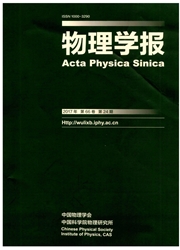

 中文摘要:
中文摘要:
4^He原子23S1→23P0,1,2跃迁的精细结构分裂,目前在理论和实验上都能够达到10-8水平的精度,并可被应用于测定精细结构常数α, 和对量子电动力学进行检验.该方面实验研究的关键, 是需要提高测量信噪比,并消除各种可能的系统偏差, 将这一精细结构分裂测量到亚kHz水平.在设计的这套实验方案中, 首次结合激光冷却原子技术,通过激光横向冷却来提高亚稳态氦原子束的束流强度,并对三态亚稳态氦原子进行偏折, 将其从原子束中分离,从而大幅降低测量背景,并利用频率锁定激光器的边带扫描的方式来进行光谱测量,以使得扫描测量中保持足够的频率精度. 在目前基本搭建成的实验装置上,实验方法的可行性已经获得验证,分析表明有望实现亚千赫兹水平的测量准确度.
 英文摘要:
英文摘要:
The 2^3P0,1,2 fine structure interval of 4He can be determined to 10^-8 accuracy both theoretically and experimentally. It can be used either to determine the fine structure constant or to test the quantum electrodynamics theory. To reach this goal, it is necessary to measure the fine structure splitting to sub kHz accuracy by increasing the signal-to-noise ratio and eliminating the systematic deviations. In the experimental configuration of present study, transverse laser cooling is used to obtain an intense metastable helium atom beam. The triple state metastable atoms are also bent from the original atomic beam to reduce the background noise. The spectral scanning will be accomplished by tuning the sideband of a frequency-locked diode laser to maintain sufficient frequency stability during the scan. The experimental method has been tested on the setup recently built, and the analysis shows that a sub-kHz precision is feasible.
 同期刊论文项目
同期刊论文项目
 同项目期刊论文
同项目期刊论文
 期刊信息
期刊信息
